Quotes & Sayings About Literary Masterpieces
Enjoy reading and share 9 famous quotes about Literary Masterpieces with everyone.
Top Literary Masterpieces Quotes

It's certainly no secret that American students are taught less and less about the canonical literary masterpieces of the past, and there is no shortage of people who believe that what little they're required to learn in school is still too much. — Terry Teachout
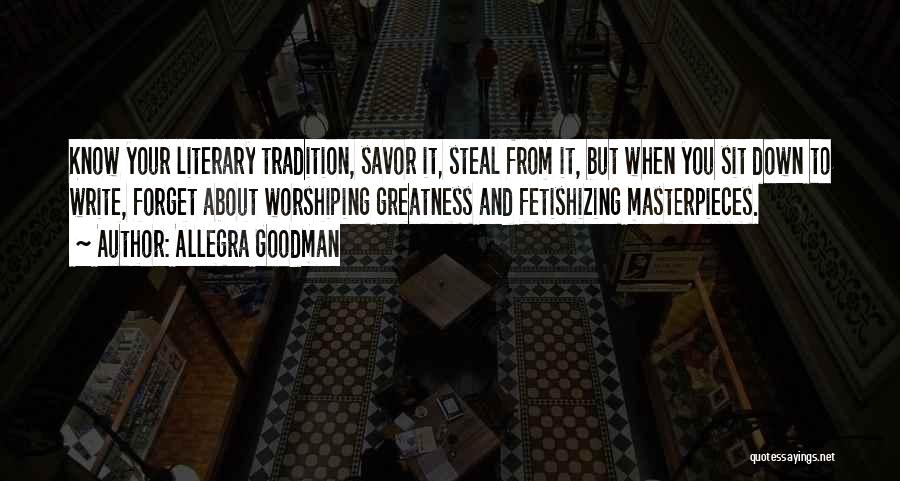
Know your literary tradition, savor it, steal from it, but when you sit down to write, forget about worshiping greatness and fetishizing masterpieces. — Allegra Goodman
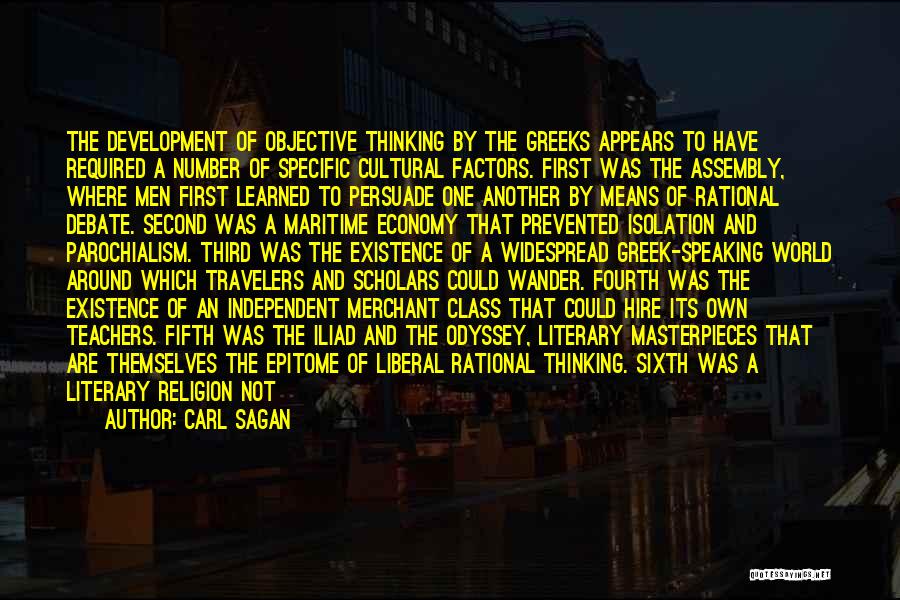
The development of objective thinking by the Greeks appears to have required a number of specific cultural factors. First was the assembly, where men first learned to persuade one another by means of rational debate. Second was a maritime economy that prevented isolation and parochialism. Third was the existence of a widespread Greek-speaking world around which travelers and scholars could wander. Fourth was the existence of an independent merchant class that could hire its own teachers. Fifth was the Iliad and the Odyssey, literary masterpieces that are themselves the epitome of liberal rational thinking. Sixth was a literary religion not dominated by priests. And seventh was the persistence of these factors for 1,000 years. — Carl Sagan
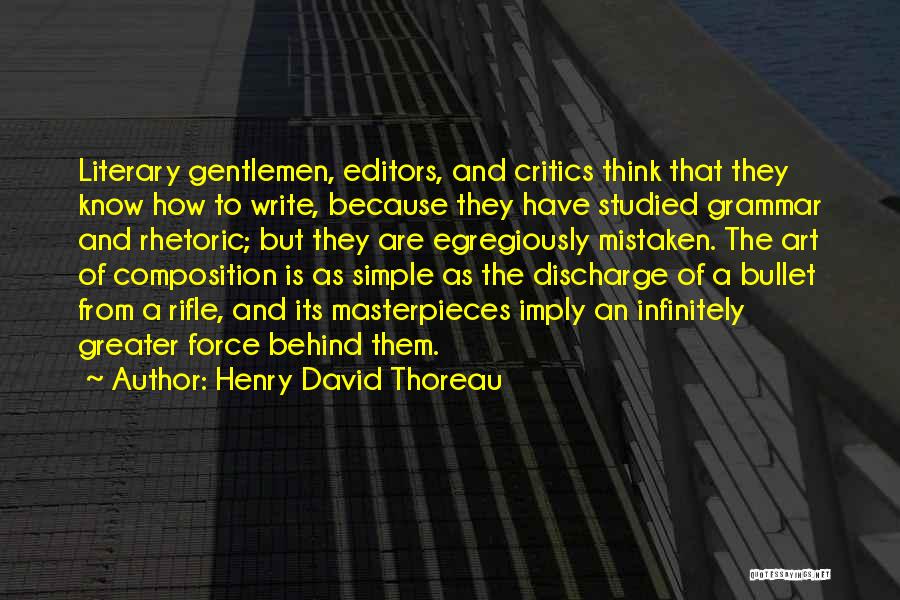
Literary gentlemen, editors, and critics think that they know how to write, because they have studied grammar and rhetoric; but they are egregiously mistaken. The art of composition is as simple as the discharge of a bullet from a rifle, and its masterpieces imply an infinitely greater force behind them. — Henry David Thoreau
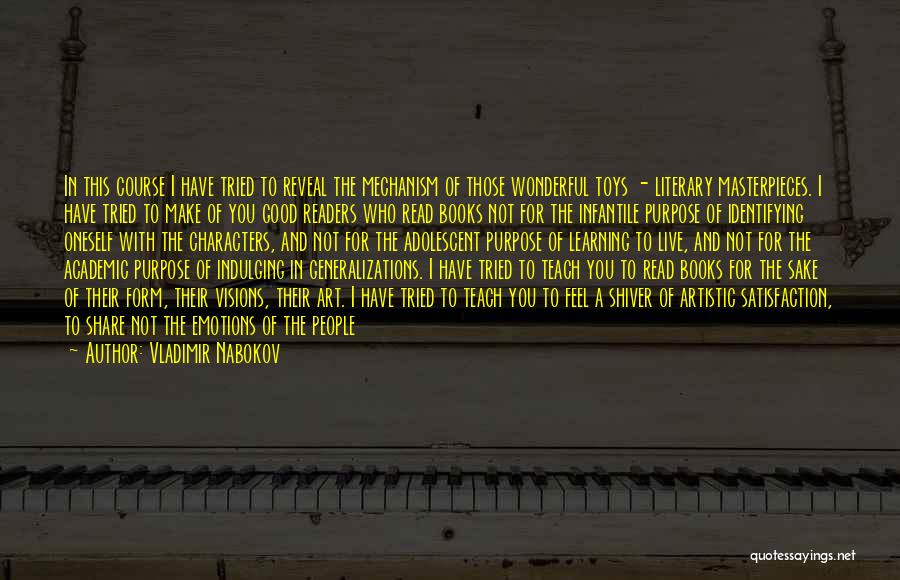
In this course I have tried to reveal the mechanism of those wonderful toys - literary masterpieces. I have tried to make of you good readers who read books not for the infantile purpose of identifying oneself with the characters, and not for the adolescent purpose of learning to live, and not for the academic purpose of indulging in generalizations. I have tried to teach you to read books for the sake of their form, their visions, their art. I have tried to teach you to feel a shiver of artistic satisfaction, to share not the emotions of the people in the book but the emotions of its author - the joys and difficulties of creation. We did not talk around books, about books; we went to the center of this or that masterpiece, to the live heart of the matter. — Vladimir Nabokov
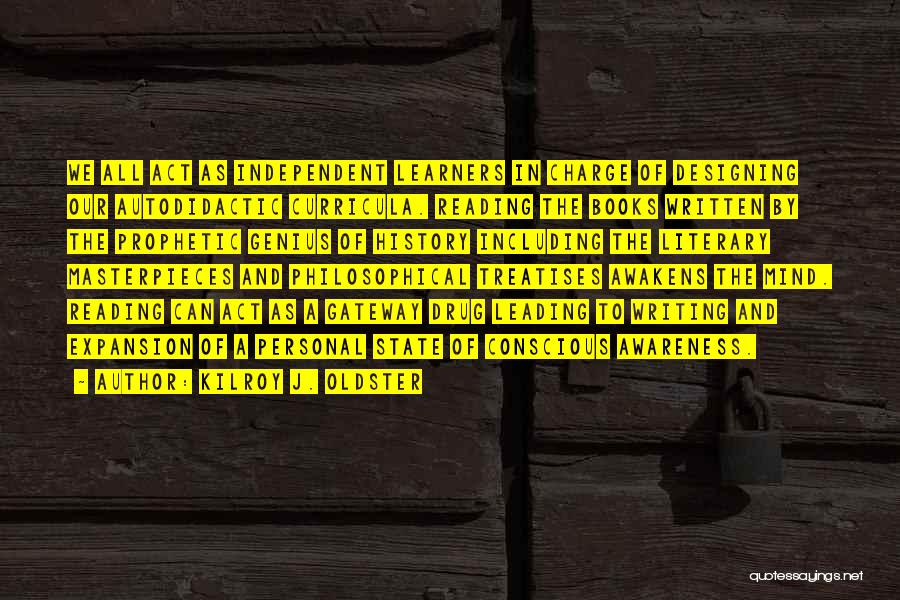
We all act as independent learners in charge of designing our autodidactic curricula. Reading the books written by the prophetic genius of history including the literary masterpieces and philosophical treatises awakens the mind. Reading can act as a gateway drug leading to writing and expansion of a personal state of conscious awareness. — Kilroy J. Oldster
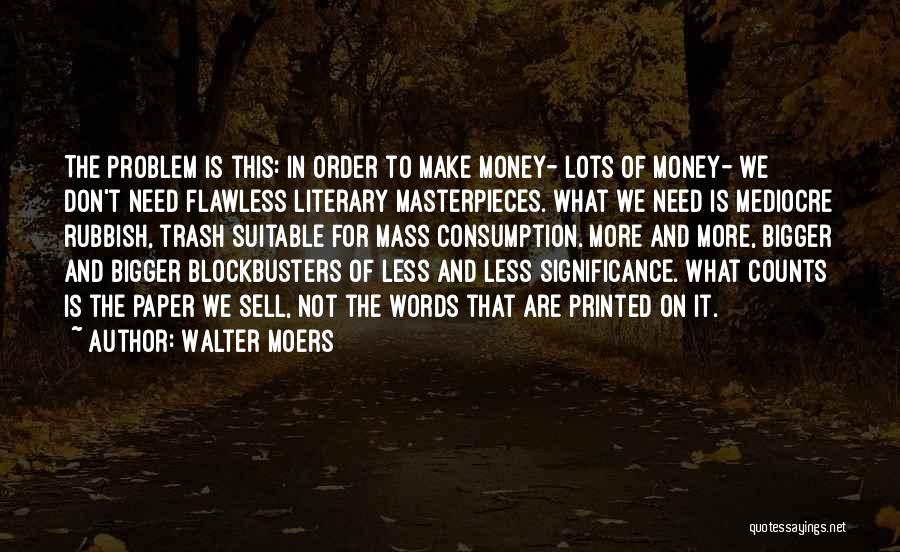
The problem is this: in order to make money- lots of money- we don't need flawless literary masterpieces. What we need is mediocre rubbish, trash suitable for mass consumption. More and more, bigger and bigger blockbusters of less and less significance. What counts is the paper we sell, not the words that are printed on it. — Walter Moers
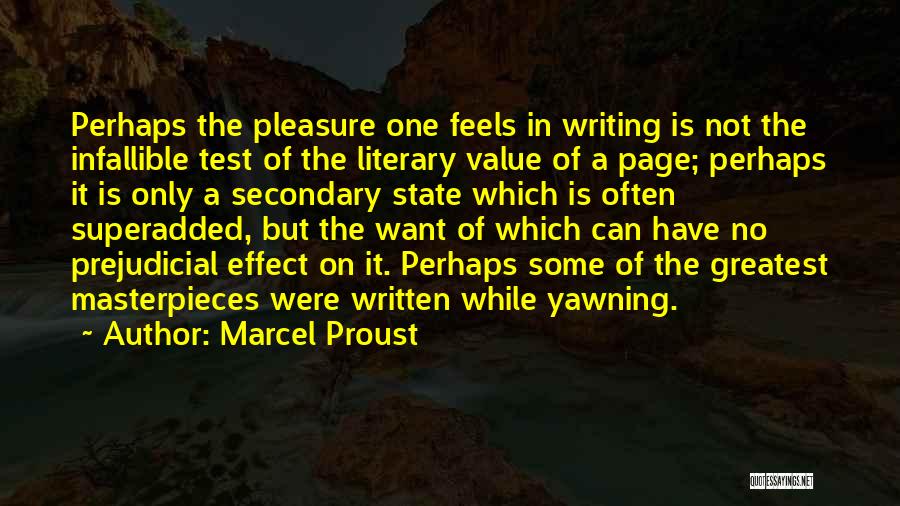
Perhaps the pleasure one feels in writing is not the infallible test of the literary value of a page; perhaps it is only a secondary state which is often superadded, but the want of which can have no prejudicial effect on it. Perhaps some of the greatest masterpieces were written while yawning. — Marcel Proust
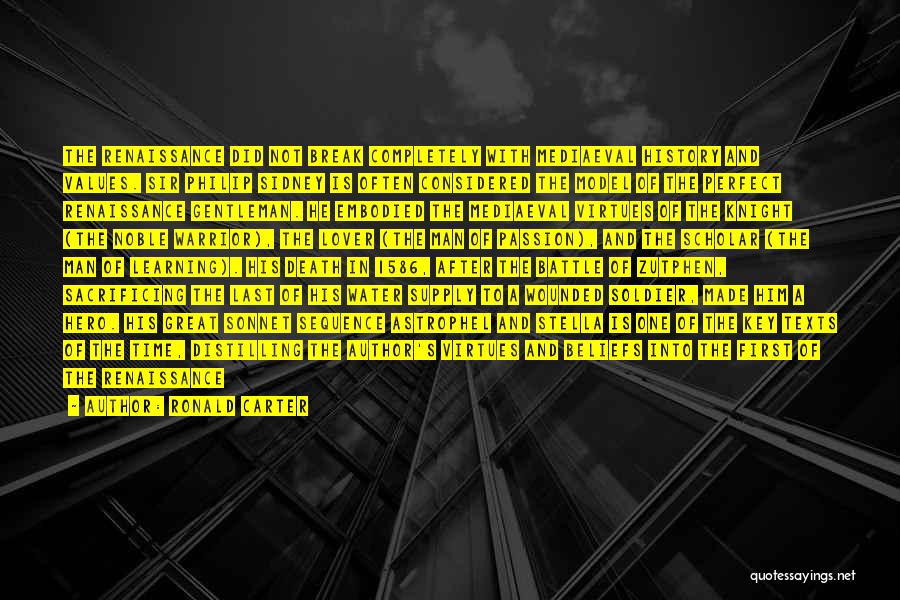
The Renaissance did not break completely with mediaeval history and values. Sir Philip Sidney is often considered the model of the perfect Renaissance gentleman. He embodied the mediaeval virtues of the knight (the noble warrior), the lover (the man of passion), and the scholar (the man of learning). His death in 1586, after the Battle of Zutphen, sacrificing the last of his water supply to a wounded soldier, made him a hero. His great sonnet sequence Astrophel and Stella is one of the key texts of the time, distilling the author's virtues and beliefs into the first of the Renaissance love masterpieces. His other great work, Arcadia, is a prose romance interspersed with many poems and songs. — Ronald Carter





